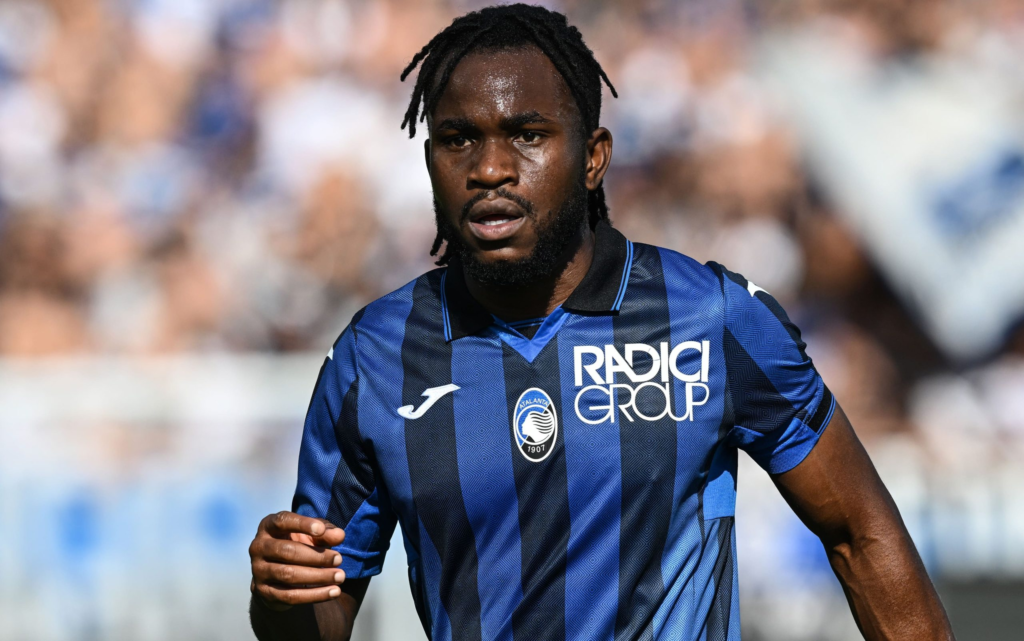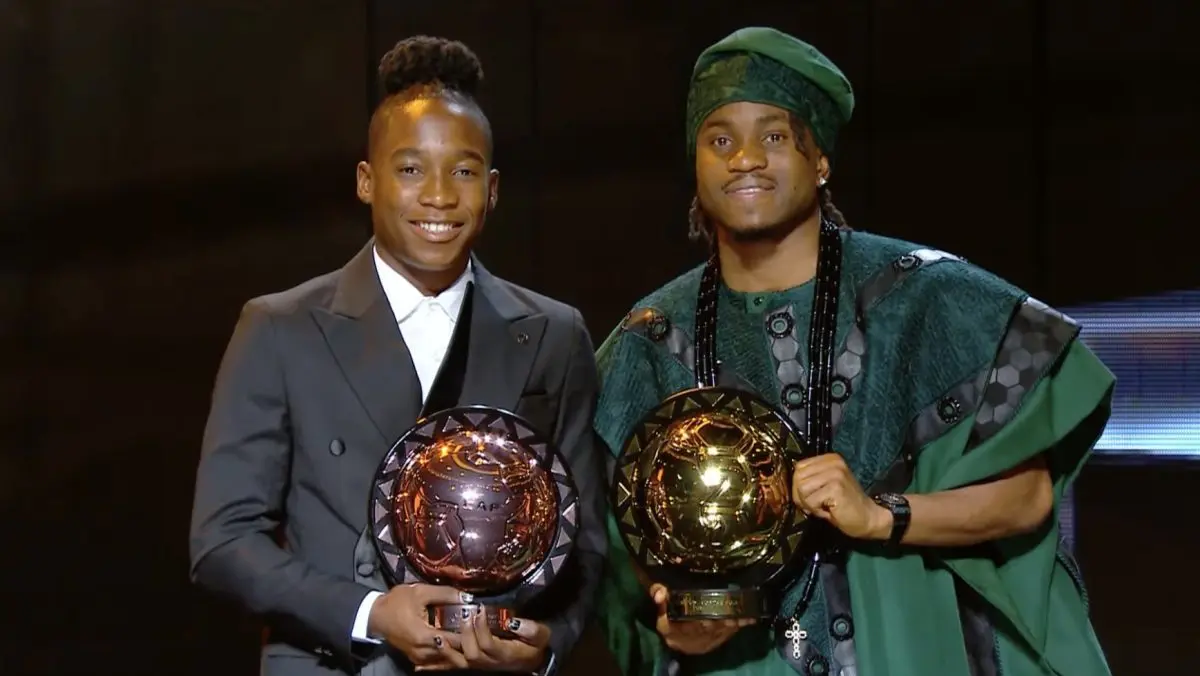On Monday night, Barbra Banda was crowned the Women’s African Player of the Year at the 2024 Confederation of African Football Awards in Marrakesh, becoming the first Zambian to win the award.
Following a stellar year, Barbra Banda was the first African ever to be named in the FiFPro Women’s World 11 earlier this month and was also voted BBC Women’s Footballer of the Year for 2024, however, recognition across British media of the Zambian’s achievements have been marred by controversy.
In 2022, while on the verge of a move to Real Madrid, which consequently collapsed, Banda was not selected for the Women’s African Cup of Nations (WAFCON) on gender eligibility rules and details of the decision still have never been made fully clear. Although sources claim she didn’t meet the testosterone threshold to compete in the tournament, others claim she didn’t take a test at all.

Since the tournament, she has represented her nation Zambia at the 2024 Olympic Games, scoring 4 goals, including a remarkable first-half hat-trick against Australia. She has also become the second-most expensive female player ever, moving to the NWSL outfit Orlando Pride for a reported $740,000. In 2024, she netted 17 goals in 25 games for the Pride, capping off a great year by leading them to their maiden NWSL title last month, as the finals MVP.
UK newspapers such as The Times and Daily Telegraph have reported on Banda’s historic achievements in the context of the “gender controversy” debate that has eaten up women’s sport throughout the 2020s, with fellow African sportswomen, runner Caster Semenya and boxer Imane Khelif at the centre of the debate. Every headline on Banda’s success is tagged with the dispute, rather than solely appreciating her success. The outspoken JK Rowling also chimed in on Banda’s BBC victory, saying it was a “spit directly into women’s faces”.
In an article for the Telegraph on Tuesday, Ben Rumsby wrote of how Banda’s inclusion in the World 11 denied places of Lioness stars like Alessia Russo and Ella Toone, whose achievements this year cannot be put in the same realm of Banda’s showing the disrespect the media has for the Zambian.
US women’s national team’s head coach, Emma Hayes has criticised the “ridiculous” treatment of Banda, saying:
“It is ridiculous that she has to endure questions like this, to be quite honest with you… I speak so highly of her because, in the women’s game, we talk about all the top players that come from more traditional nations and I think it’s great that we see such quality coming out of Africa. I know my assistant coach [Lisa Cole, an adviser to the Zambia women’s national team] coached her at Zambia and talked about what an amazing person she is, so she has our full support.”
The gender debate aside, as Hayes said, there is ”such quality coming out of Africa,”, but the British media doesn’t sufficiently recognise their talent or achievements. Those hailed appear to have to showcase their talent at the top level in Europe to gain their deserved praise, such as Mohamed Salah.

Outside this, however, those written about seem to have a line of controversy attached to them, like Banda, or are met with a condescending undertone. Ademola Lookman was on stage with the Zambian as he took home the Men’s African Player of the Year on Monday and was nominated for the Ballon d’Or after a fantastic 2024, including a hat-trick in the Europa League final against Bayer Leverkusen. Looking at the only Daily Telegraph article about Lookman’s individual accolades of late, the subtitle includes “Wandsworth born Nigeria international”. When Marc Guehi impressed for England in Euro 2024 this summer, his Ivory Coast birthplace was very rarely mentioned. The AFCON awards this year seemed to have little effect on the media’s attitude towards African players.
Notwithstanding, players of African heritage had a huge influence on Euro 2024, making for a culturally diverse event with players such as Spanish wingers, Nico Williams and 16-year-old sensation, Lamine Yamal, key in the country’s victory. The interest in the tournament was reportedly sky-high in Africa with the large fascination of those who have African heritage.
The globalisation of European football has inspired a genuine passion amongst African fans for European football, while the game remains underdeveloped and underfunded in the continent itself. The top 5 major leagues are widely accessible across the continent and many young, talented Africans dream of playing in Europe.
The same admiration and respect can’t be said about Europe’s attitude towards African competitions. There have been many examples of Africans being encouraged to miss AFCONs over the years. Mário Semedo, the Cape Verde president stated: “Europe must open its eyes. But also television must open its eyes. These are big tournaments that deserve all respect, not only from the clubs or the coaches but also from the media.”
Bringing it back to Barbra Banda, the narrative of her success being marred by gender controversy should not be simply dismissed as an overarching sports debate. If you look at African media outlets, the focus is on the achievement, and not reduced to minimising her success. There is a lack of respect when it comes to British media in its view of African football, despite its undoubted influence in the modern European game.
